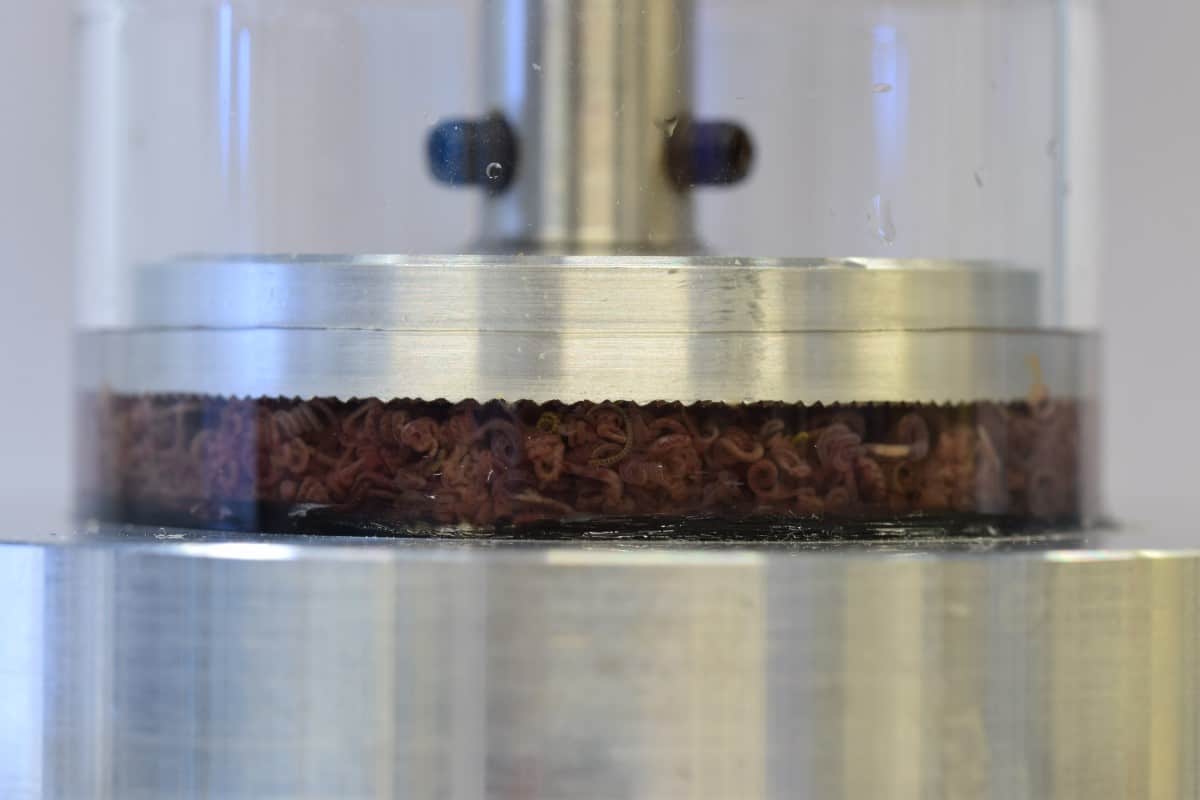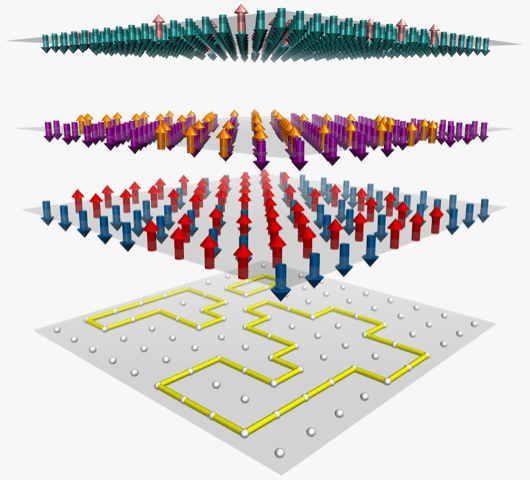Quantum computers untangle knotty polymer problem
06 Oct 2021 Pradeep Niroula
The sheer length and complexity of polymers – chains of molecules that make up both artificial materials such as plastics and the proteins that form the essential building blocks of life – make them formidable objects to study. Researchers in Italy have now tackled this problem in a new way, using quantum computers to make polymers slightly more approachable.
In a collaboration between the Scuola Internazionale Superiore di Studi Avanzati in Trieste and Trento University in Trento, Cristian Micheletti, Philipp Hauke and Pietro Faccioli used a specialist quantum computer called a quantum annealer to predict configurations of polymer chains. In doing so, Micheletti says they first had to “recast the basic models of polymer physics so that they can be used in a quantum computing framework”, anticipating that quantum technology will be the driving force behind scientific computing in the future.
Polymers’ twist and turns
Despite their ubiquity and usefulness, polymers are notoriously hard to study. The ways these chains fold, intertwine and link with each other gives a polymeric material its unique properties. When researchers study polymers, they sample large numbers of such possible shapes, also known as conformations, and compute their properties. For example, studying how plastic polymer chains disassociate at different temperatures could tell us how the material might weaken or melt as it becomes hotter. Similarly, studying biological polymers, such as DNA, may give invaluable insights into the workings of a cell.
However, studying polymers is a computational challenge, especially if they are densely packed. The simplest model of polymers treats them as continuous paths on a regular lattice. But the numbers of possible paths (that is, the number of ways a polymer chain can fold and contort) are too numerous to calculate, even for a powerful supercomputer. On top of that, not all possible paths are chemically valid – some polymers do not allow chains that branch into two, while others will not allow loops. This task of sampling valid conformations from a dauntingly large search space is a central problem in polymer physics.
Quantum annealers to the rescue
In their study, which is published in Physical Review Letters, the researchers devised a way to map the problem of identifying valid polymer conformations onto a problem that is somewhat more tractable: minimizing the energy of a quantum system. To do this, they encoded the rules for polymer conformations onto a mathematical object called a Hamiltonian that describes the energy dynamics of a quantum system. The lowest-energy quantum state of this Hamiltonian contains only those arrangements of polymer chains that obey the rules.READ MORE

The team’s next task was to obtain the lowest-energy solution of the Hamiltonian. They did this with the aid of a quantum annealer operated by the quantum computing firm D-Wave Systems. Unlike a general quantum computer, which can execute universal logic through a sequence of elementary operations, quantum annealers specialize in the singular task of finding lowest-energy states. The researchers used D-Wave’s annealer to validate their algorithm using examples simple enough to fit onto the available hardware. Crucially, they observe that the operation time of their quantum-aided algorithm scales more favourably than is the case in a classical version of the same algorithm, at least for examples of the size they studied on the quantum annealer.
Because the small sizes of hardware available today limit the complexity of the polymers that can be probed using this technique, we might have to wait some time before common polymers like fishing lines and fabrics are designed using quantum computers. The new result is, however, a good starting place, says Micheletti. “We are now considering its extension to richer and more realistic polymer models,” he adds.

Pradeep Niroula is a PhD student contributor to Physics World. Pradeep is studying quantum error correction and complexity theory at the University of Maryland. Find out more about our student contributor networks
from physicsworld.com 20/10/2021

Δεν υπάρχουν σχόλια:
Δημοσίευση σχολίου